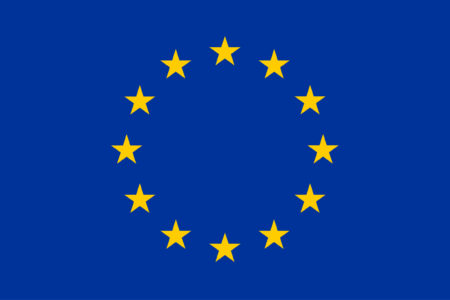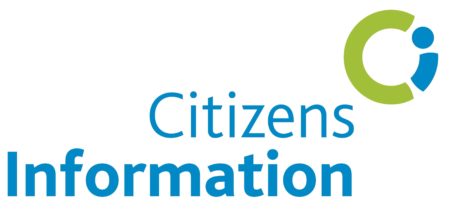24 February 2025
By Elaine Murphy
elaine@TheCork.ie
Getting Married
Ciara O’Gorman, Development Manager with South Munster Citizens Information Service looks at what is involved in getting married.
What are the requirements to be able to marry in Ireland?
“Couples of the same sex or opposite sexes can marry in Ireland. The minimum age for getting married in Ireland is 18 years of age. If you are ordinarily resident in Ireland and you wish to get married abroad, you must be aged at least 18. In addition, you must have the capacity to marry. That is, you must freely consent to the marriage and have the capacity to understand what marriage means.”
Do I need to give notice of my intention to marry?
“Yes you do. You need to give your local civil registration service 3 months’ notice that you intend to get married. To do this you need to book a marriage notification appointment. The appointment needs to be at least 3 months before you intend to get married.” Ciara clarifies “The 3 months’ notice starts from the marriage notification appointment date. You cannot get married until after the 3 month notice period. You do this at your local civil registration office of which there are six in the South Munster region. In Cork, these are located in Cork city, Mallow, Castletownbere and Skibbereen. In Kerry, there are civil registration offices in both Tralee and Killarney.”
What happens at the marriage notification appointment?
“Both of you must attend the marriage notification appointment. You will meet the registrar and you will both sign a declaration. This states that you do not know of any legal reason why the marriage cannot happen. If everything is in order, the registrar will give you a marriage registration form. This is valid for 6 months from the date you intend to get married.”
Are there fees?
There is a non-refundable notification fee which is currently €200. It is usually paid at the marriage notification appointment.
What If I need to postpone the marriage ceremony?
“If the new date is within the 6 month period, your form can be amended” says Ciara. “If you need advice, contact the civil registration office that did your paperwork. However, if you are not getting married within 6 months, you will need to contact the civil registration office and give them your new date. Do this at least 3 months before your new marriage date. You will then need to meet with the registrar again to get a new marriage registration form but there is no additional charge for this.”
What if I am marrying a foreign national?
You will need to attend an interview with the registrar if:
- you are an EU national marrying a non-EU national
- one of you is a foreign national
If a couple are only marrying for an immigration advantage, the registrar cannot issue a marriage licence.
Who can marry you?
For a marriage to be legal, a registrar or solemniser must perform the ceremony. The solemniser must be on the register of solemnisers. This register is available on a link on the citizensinformation.ie website. For a civil ceremony, the registrar will solemnise the marriage.
Civil ceremonies – what do I need?
You will need two witnesses aged 18 or older. The registrar who conducted the ceremony will register the marriage. You may need to pay an additional fee to have a civil ceremony in a venue that is not a registrar’s office.
What about religious and secular ceremonies?
You must book a notification appointment for a church, religious or secular ceremony. Contact the religious or secular authority to arrange the ceremony. You will also need to register the marriage.
What if I want to get married abroad
“If either you or your partner is an Irish citizen and you plan to get married abroad, you will need to meet certain legal requirements to ensure your marriage is legally recognised when you return to Ireland” says Ciara. When you get married abroad, you must meet all the legal requirements of the country you are marrying in. These legal formalities are usually different to those in Ireland. Whether you are an Irish citizen, an EU/EEA citizen, or a foreign national, you should contact the civil registration office in the country you are marrying in to find out exactly what document you require. Ireland’s General Register Office has no involvement in marriages abroad.”
Are there additional rules for getting married abroad?
Before you get married abroad, you should contact the civil registration office in the country you will be marrying in to check you meet the legal requirements.
Some countries will ask you for a Certificate of Freedom to Marry. This is sometimes called a:
- Civil Letter of Freedom
- Certificate de Coutume
- Certificate of Nulla Osta
As well as meeting the foreign legal requirements, you are also required by Irish law to have capacity to marry.
How does one get a Certificate of Freedom to Marry?
Firstly you should start the application for a Certificate of Freedom to Marry online using the Department of Foreign Affairs’ website. You will need to complete a questionnaire and make a payment online. This currently costs €66, including €60 for the certificate, and €6 for handling and postage. After you complete the online questionnaire, you will get a checklist of all the supporting documents you need. You will also be asked to print one or more statutory declarations. A statutory declaration is a written statement that you must in front of a Commissioner for Oaths. You will then be asked to finish your application by post. Your application is not complete until the Department gets your documents.
When should I apply?
You should submit your application at least 4 months before the date of your marriage. If you submit your application 28 days or less before the date of your intended marriage, there is an additional fee of €60 per Irish applicant.
How does one ensure that the marriage is recognised in Ireland
“Marriages of Irish citizens abroad are registered in the country where they occur. The Irish General Register Office has no role in advising on or the registering of marriages of Irish citizens that take place abroad. Marriages that take place outside the State are not normally registered in Ireland.
A church marriage abroad is often a purely religious ceremony with no legal effect. As it is not recognised in law, it cannot be recognised as a legal marriage when you return to Ireland. This is the case even though a marriage in the same denomination in Ireland can be legally binding. Your marriage will only be recognised in Ireland if it is entered on the civil register of the country where the wedding took place and if all legal formalities have been followed. If you need to show evidence that you are married, your foreign marriage certificate will usually be accepted for official purposes in Ireland.

If your marriage takes place in an EU country, and your foreign marriage certificate is not in English, you can ask for a multilingual standard form (MSF), available in all EU languages, from the authorities of the EU country which issued the public document. If your marriage takes place in a non-EU country and the certificate is in a foreign language, you must provide an official translation or a translation from a recognised translation agency. If you want a copy of your foreign marriage certificate, contact the civil registration authority in the country where you were married.”
That sounds very complicated. Have I any other options when I get married abroad?
“Well, you can always have the non-binding ceremony and wedding party abroad and do the legal ceremony here in Ireland. It is quite a popular option. The actual ceremony takes 10 to 15 minutes but you get a 30 minute slot.
Where can I get further Information?
If anybody needs more information they should give our service a call or check our website citizensinformation.ie. We will go through your situation and guide you in the right direction. The service is free and confidential.
Further information on this and other topics is available from Cork City Centre CIC in Cornmarket Street, open to the public on Mondays, Tuesdays, Thursdays and Fridays from 9.45am to 12.30pm and Wednesdays from 2pm to 4pm, Tel 0818 07 6950 (Lines open Mon-Fri 10am-4.30pm). Blackpool CIC is also open to the public on Tuesdays and Thursdays from 10am to 1pm and 2pm to 4pm, Tel 0818 07 6890 while Hollyhill CIC is open Mondays and Fridays from 10am to 1pm and 2pm to 4pm, Tel: 0818 07 6850.
Information is also available from the Citizens Information Phone Service Tel: 0818 07 4000 (9am – 8pm, Mon – Fri) or online at www.citizensinformation.ie

